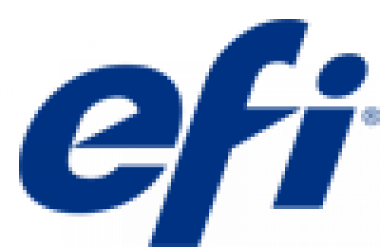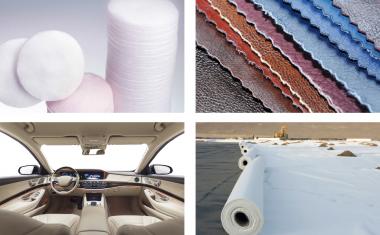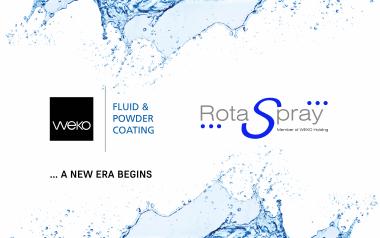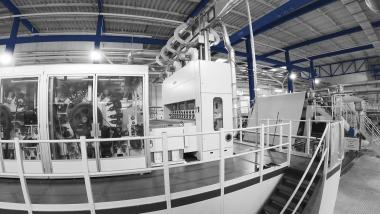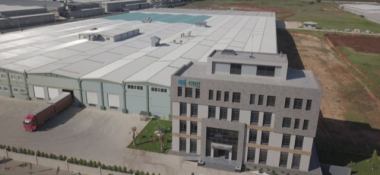EFI Reggiani Launches the Fastest High-Quality Scanning Digital Textile Printer in the Market
- New HYPER model produces extraordinary printing quality at unparalleled speed, approaching single-pass throughput
Electronics For Imaging, Inc. is launching its third new digital textile printer of 2021, delivering the world’s highest real production throughput for a scanning digital textile printer. The EFI™ Reggiani HYPER is a scanning printer available in 1.8-metre, 2.4-metre or 3.4-metre widths. With an up to eight-colour configuration, the EFI Reggiani HYPER prints at up to 13 linear metres per minute in two-pass production mode, making it the fastest textile scanning printer on the market. The new printer is suitable for high-quality production on knitted or woven fabrics and is designed with smart technology that enables it to be integrated into Industry 4.0 projects.
The new EFI Reggiani HYPER targets the industrial high-speed segment of the multi-pass textile printing sector. Not only is it the fastest multi-pass printer that EFI Reggiani has ever developed, but the fastest of its kind in the market, offering extraordinary printing quality with unmatched productivity.
The HYPER’s superfast carriage with 72 printheads can print two passes with production quality at speeds up to 13 metres per minute for a 1.5-metre-wide roll, or up to 10 metres per minute for a 3-metre-wide roll. On a 3.4-metre Reggiani HYPER printer, users can print a pair of 1.5-metre-wide rolls in parallel, delivering a total throughput of up to 20 metres per minute, which is comparable to some single-pass printers currently in the market.
The printer is powered by EFI Reggiani genuine inks, with high-quality formulas developed to ensure the best performance in terms of runnability and longer printhead life while producing astonishing colour depth and brightness, as well as excellent fastness properties.
EFI


